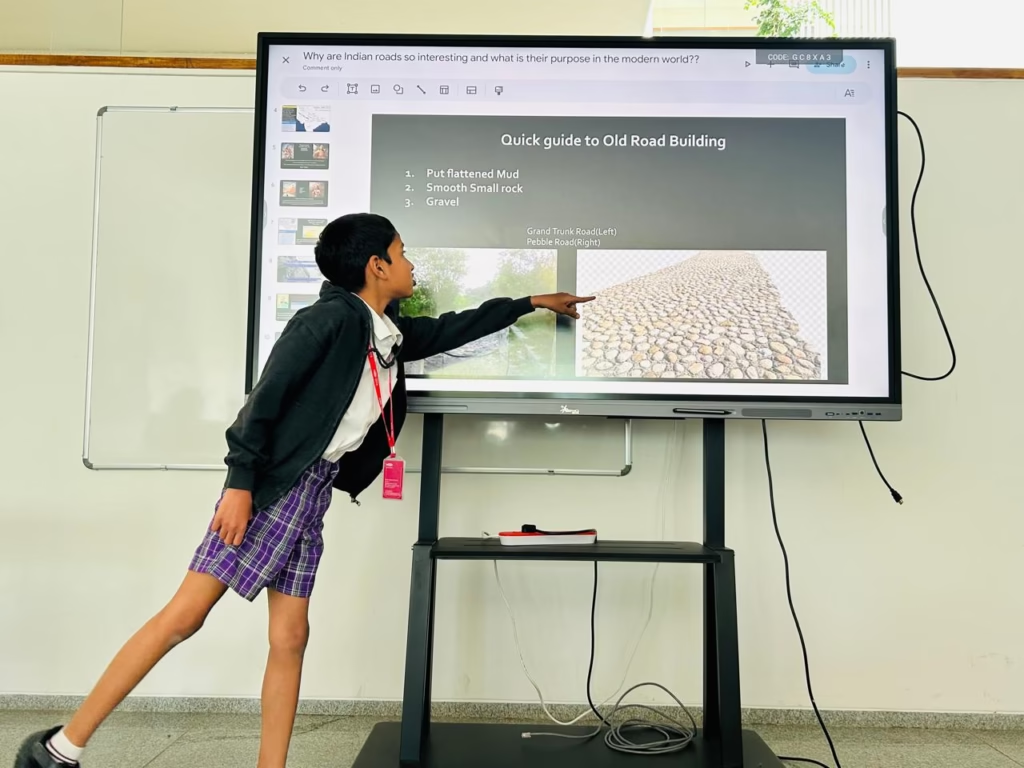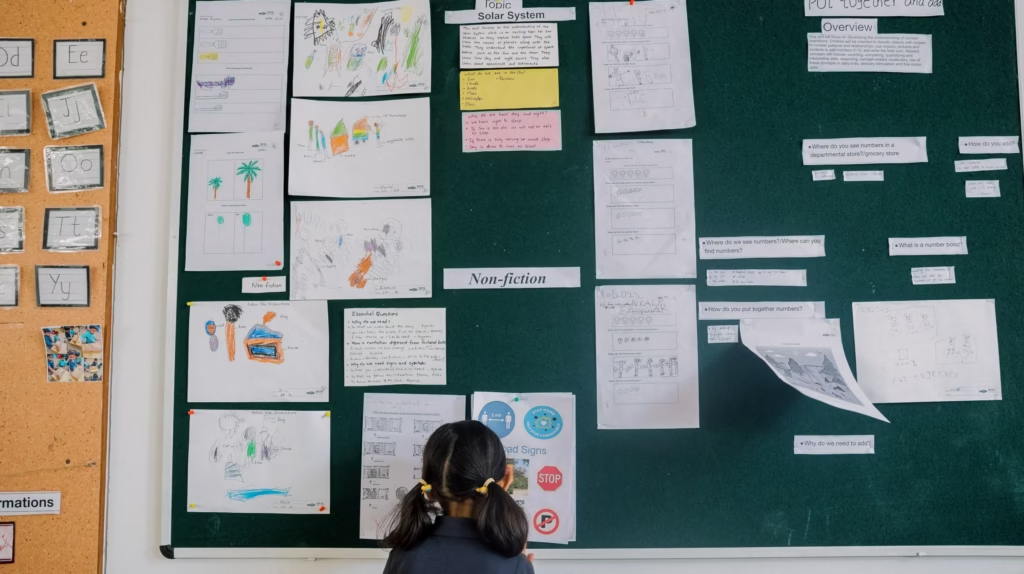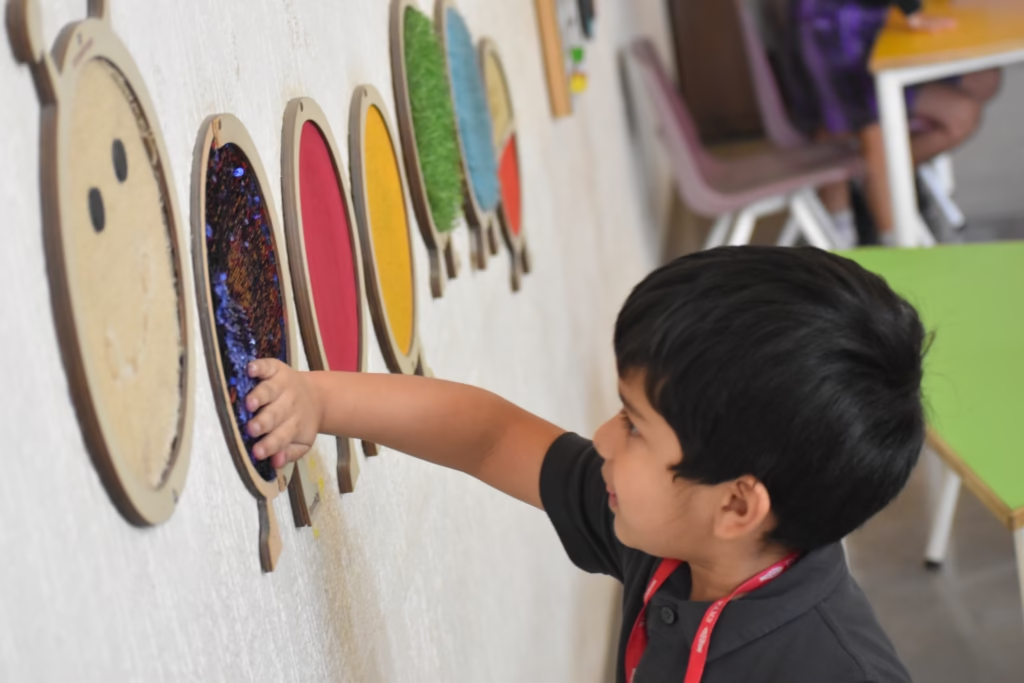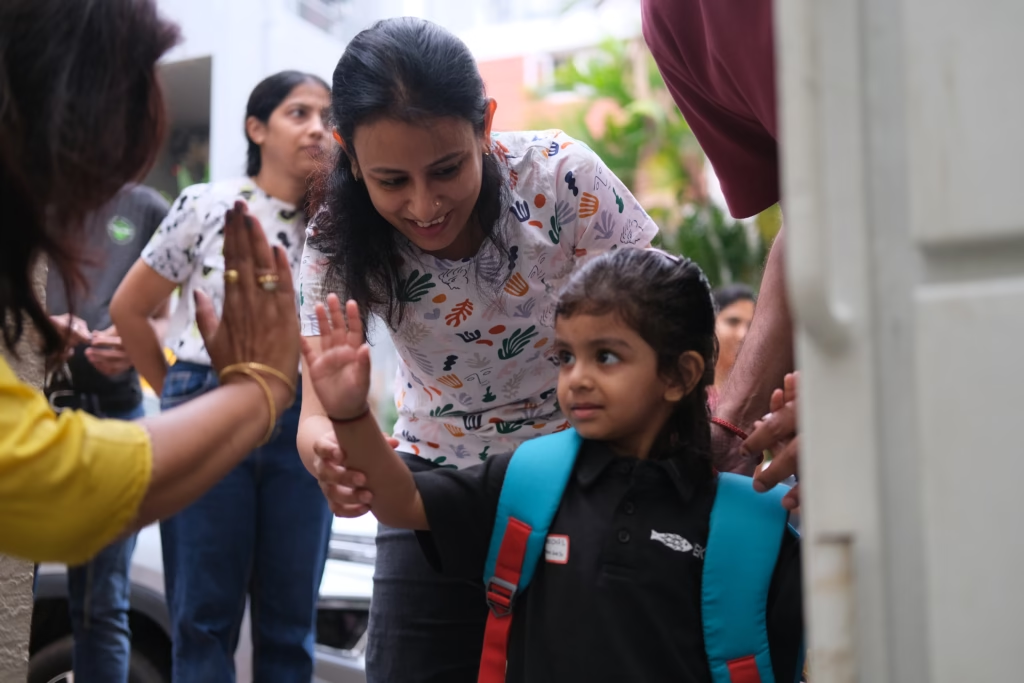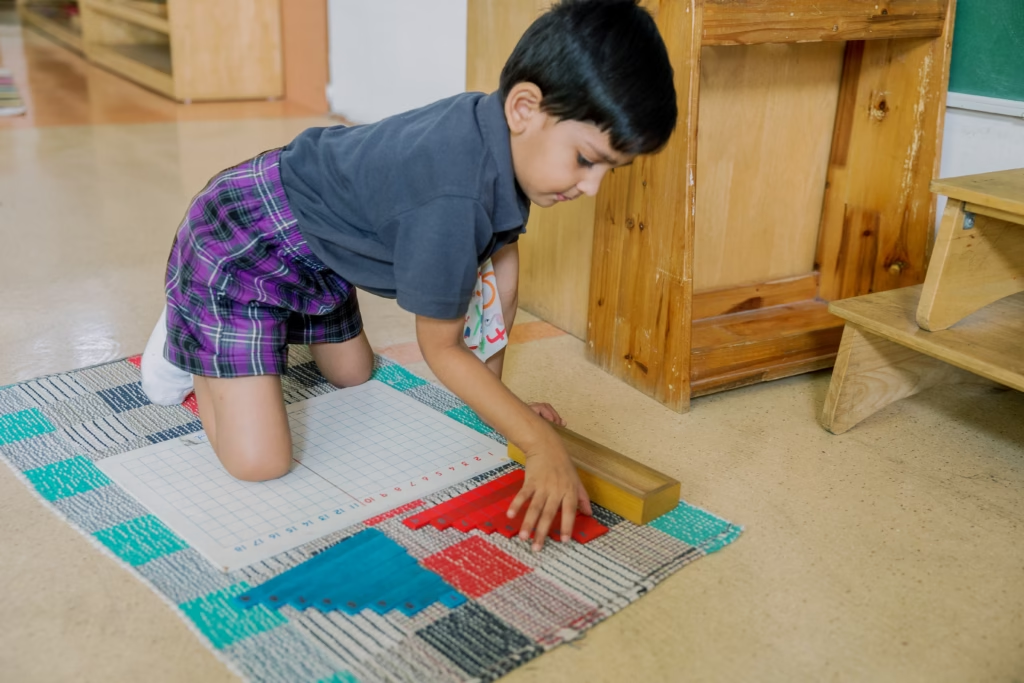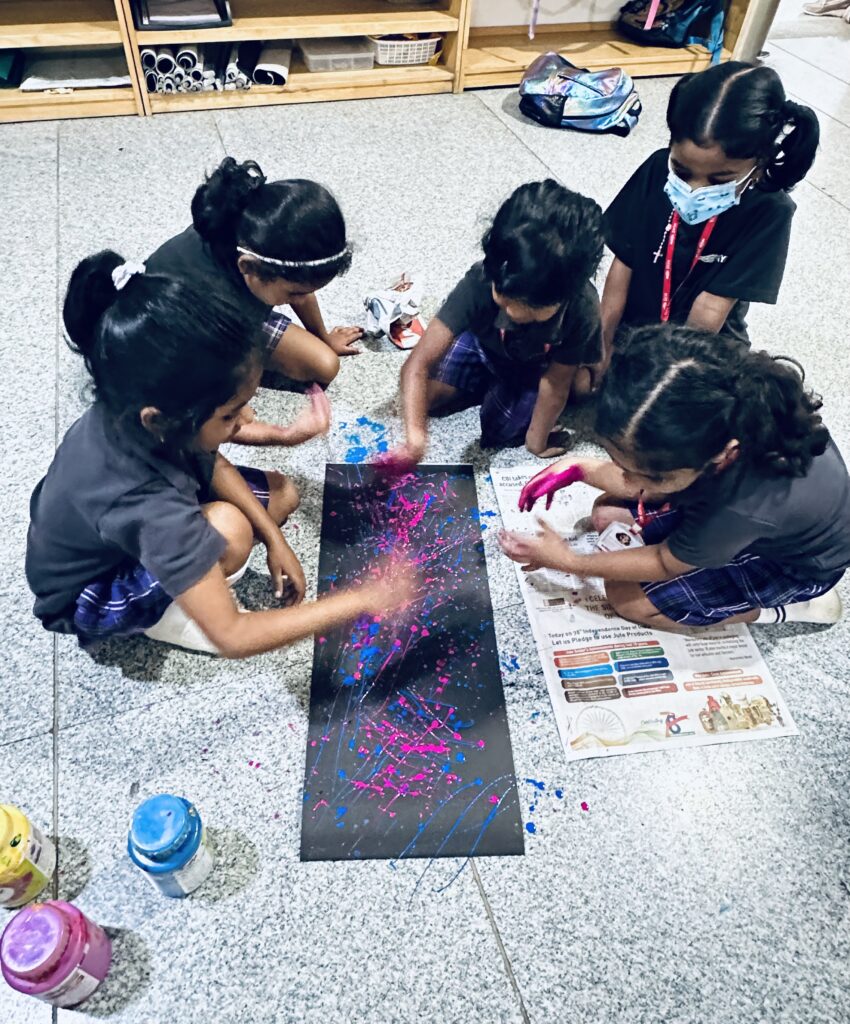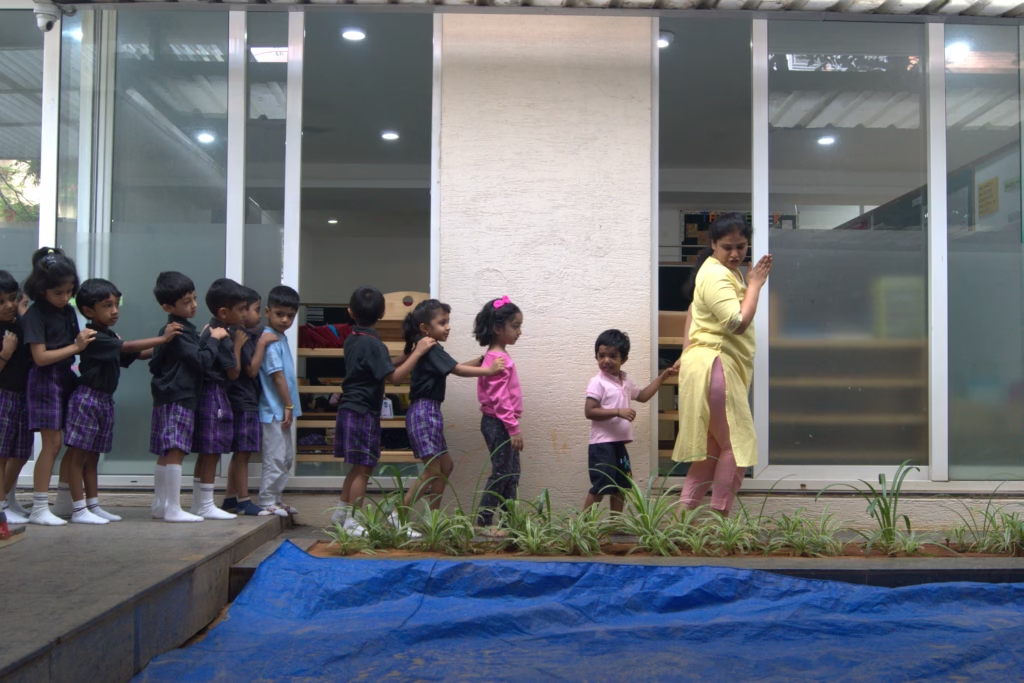From Theory to Practice: The Impact of Purpose-Based Learning
What if education wasn’t just about memorizing facts, but about solving real-world problems? What if every lesson had a purpose that inspired children to think critically and act meaningfully? This is the promise of purpose-based learning, an approach that transforms education into an engaging, hands-on journey from theory to practice. At Ekya Nava, one of the top IGCSE schools in Bangalore, purpose-based learning is at the heart of our teaching philosophy. We believe that when students connect what they learn in the classroom to the world around them, they not only excel academically but also grow into confident, empathetic, and solution-oriented individuals. We’ll explore the transformative impact of purpose-based learning, how it prepares students for the future, and why it’s a game-changer in education. What is Purpose-Based Learning? Purpose-based learning goes beyond conventional methods of teaching by focusing on real-world applications of theoretical knowledge. It encourages students to ask questions like: Why am I learning this? How does this knowledge help me in the real world? What problems can I solve with this skill? Instead of passively absorbing information, students actively engage in projects, experiments, and collaborative tasks that connect classroom concepts to real-life situations. For example, a mathematics lesson might involve designing a budget for a sustainable project, or a science topic might lead to building a model to address an environmental challenge. The Impact of Purpose-Based Learning on Students Drives Engagement and Motivation When students see the relevance of what they’re learning, they become more engaged and motivated. Lessons become more than just exercises—they become opportunities to explore, create, and solve problems. Example at Ekya Nava: Our students recently worked on a project to design eco-friendly homes. They applied concepts from science, math, and geography to create practical solutions, all while learning about sustainability. Fosters Critical Thinking and Problem-Solving Purpose-based learning equips students with the ability to think critically, analyse situations, and make informed decisions. By tackling real-world challenges, they develop problem-solving skills that are crucial for success in any field. Fun Fact: Research shows that students who participate in hands-on, purpose-driven projects retain knowledge longer and perform better in problem-solving tasks than those in conventional learning environments. Develops Collaboration and Communication Skills In purpose-based learning, teamwork is key. Students collaborate with peers to brainstorm ideas, divide responsibilities, and work toward common goals. This not only enhances their communication skills but also prepares them for professional environments where collaboration is essential. Pro Tip for Parents: Encourage your child to share their ideas and participate in group activities at school. It’s a great way to build confidence and teamwork skills. Builds a Growth Mindset In a purpose-based learning environment, students are encouraged to view challenges as opportunities to learn and grow. They develop resilience and adaptability by experimenting, making mistakes, and refining their approaches. Example: At Ekya Nava, students working on STEM projects often go through multiple iterations to perfect their designs, learning valuable lessons about persistence and innovation. Prepares Students for the Real World The ultimate goal of purpose-based learning is to bridge the gap between academics and real-world applications. Students gain practical skills—such as leadership, time management, and decision-making—that prepare them for higher education and beyond. Highlight: As one of the top IGCSE schools in Bangalore, Ekya Nava ensures that its students are equipped with the skills needed to excel in a global and competitive environment. How Purpose-Based Learning is Integrated at Ekya Nava At Ekya Nava, purpose-based learning is not a one-off activity—it’s embedded into our curriculum to ensure students experience meaningful education every day. Project-Based Learning Students work on interdisciplinary projects that combine concepts from multiple subjects. For instance: In a geography lesson, students might study climate patterns and use that knowledge to design disaster-resilient shelters. In an economics class, they could create business plans for social enterprises, applying principles of finance, marketing, and ethics. Real-World Connections Purpose-based learning often involves field trips, guest lectures, and hands-on experiences that bring lessons to life. Example: A visit to a local manufacturing unit helped our students understand the practical application of physics concepts like force, motion, and energy. Inquiry-Based Learning We encourage students to ask questions, explore, and discover. This inquiry-driven approach helps them develop a deeper understanding of topics, fostering curiosity and a lifelong love for learning. Integration with the IGCSE Curriculum The IGCSE framework naturally supports purpose-based learning through its focus on practical applications and critical thinking. At Ekya Nava, we align purpose-driven projects with IGCSE subjects to ensure students are well-prepared for global academic challenges. Why Purpose-Based Learning is the Future of Education Equips Students for the 21st Century In a world where creativity, collaboration, and adaptability are more valued than ever, purpose-based learning ensures that students develop these essential skills. Inspires Lifelong Learning When students see the value of their education, they’re more likely to remain curious and motivated to learn throughout their lives. Creates Socially Responsible Individuals Purpose-based learning often involves tackling community challenges, teaching students the importance of empathy, sustainability, and giving back to society. Transforming Education with Purpose-Based Learning Purpose-based learning is more than just a teaching method—it’s a philosophy that empowers students to become active participants in their education. By connecting theory to practice, it inspires curiosity, fosters critical thinking, and prepares students to tackle the challenges of the future with confidence. At Ekya Nava, one of the top IGCSE schools in Bangalore, we are committed to making education meaningful and impactful. Our purpose-based approach ensures that students don’t just learn—they grow, innovate, and make a difference. Join us in shaping the leaders and problem-solvers of tomorrow. Explore Ekya Nava, where every lesson has a purpose, and every student has the potential to change the world.

